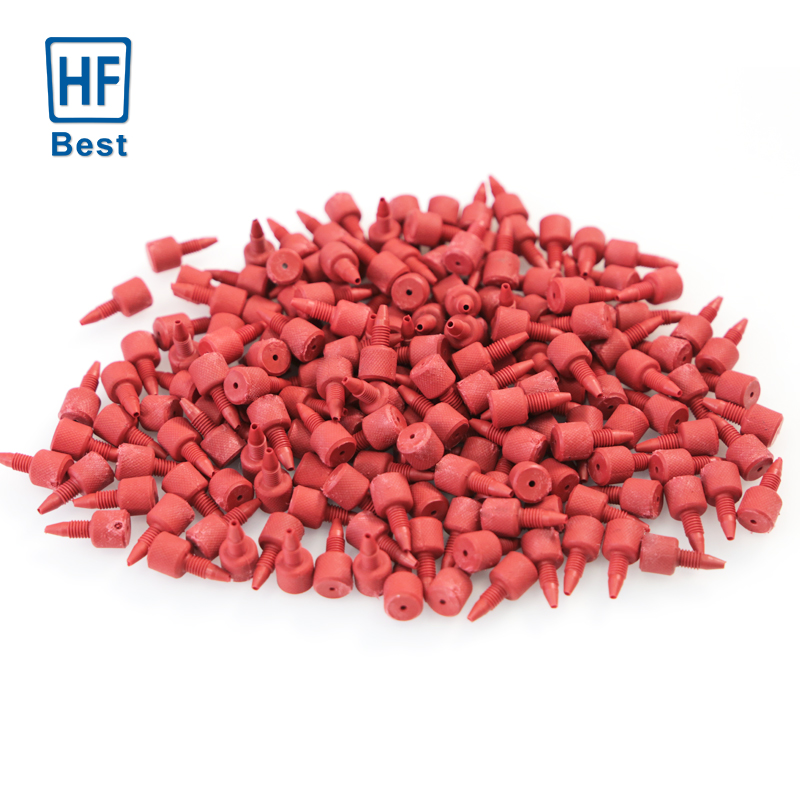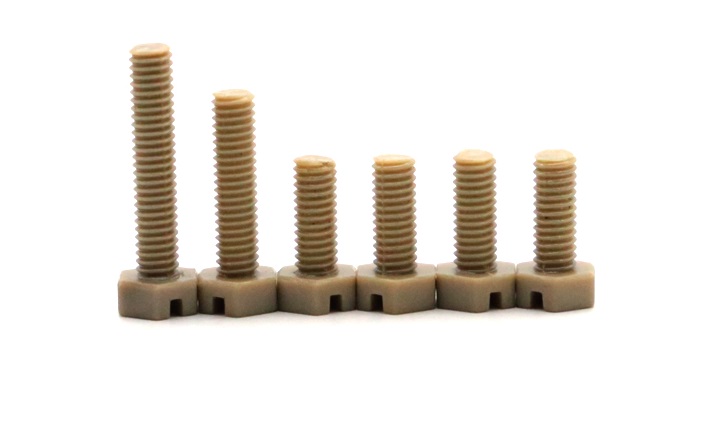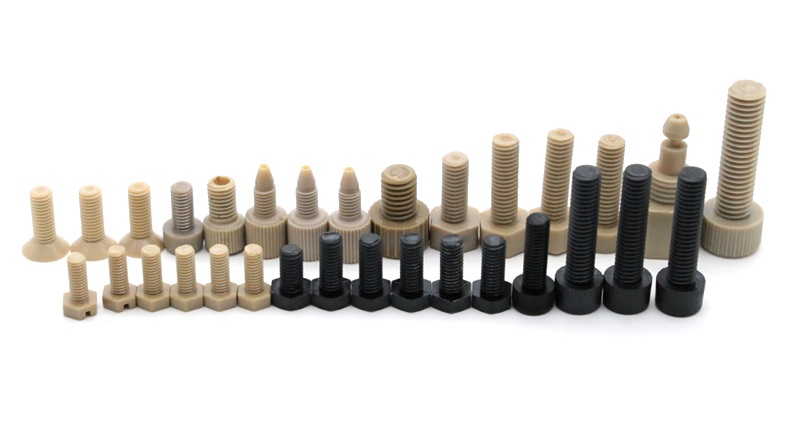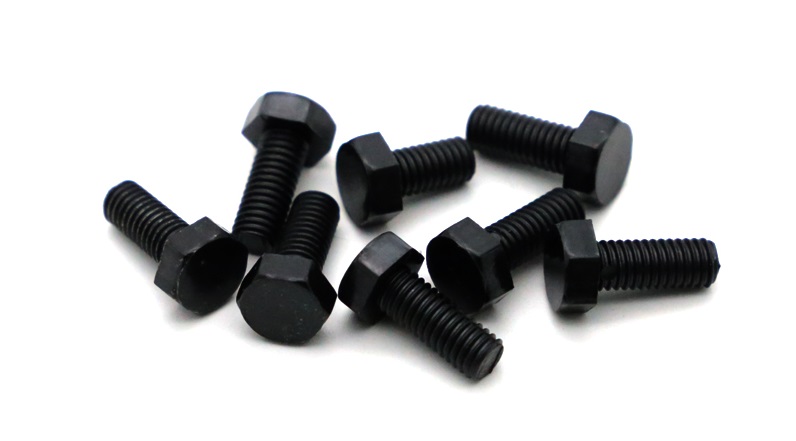News
- Industry news
Industry news
Plastic products - plastic screw processing
Plastic screw production process
1. Preparation of raw materials
Plastic pellets are mixed with other additives to make pellets suitable for the injection molding process.
2. heating and melting
The particle material is placed in the hopper of the injection molding machine and turned into a molten state by heating and melting.
3. injection molding
The molten nylon is injected into the mold, and the cavity in the mold is filled to form the shape of the screw.
4. Cooling and curing
Wait for the plastic screw to cool and cure in the mold, take out the mold, you can get the plastic screw shape.
5. Follow-up Procedure
According to needs, plastic screws can be processed, heat treatment and other follow-up treatment to meet their specific application needs.
Guangzhou Best Rubber & Plastic Co., Ltd. has more than 20 years of experience in custom processing of plastic screws, with more than 2,000 square meters of physical processing factory, but also has professional production and processing equipment, as well as professional design team, can provide customers with satisfactory products and services.

Precautions should be taken when processing plastic screws
1. When selecting materials, it is necessary to select the appropriate material type and characteristics to ensure that the products produced have excellent performance.
2. In the process of processing, it is necessary to select the corresponding processing technology according to the characteristics of the material, the requirements of the product and the requirements of the processing equipment.
3. In the molding process, it is necessary to strictly control the processing temperature and pressure to ensure that the product has a good surface finish and dimensional accuracy.

The thread processing of plastic parts needs attention
1.The tool for turning plastic threads must be sharp to prevent the rebound of turning thermoplastics and turning thermoset plastics due to large cutting force caused by tooth collapse.
2. When turning thermoset plastic threads, it is necessary to use a small radial front Angle or negative edge Angle, and to control the depth of the cutting tool (ap=0.l~0.5mm), increase the number of cutting times to maintain the complete shape of the teeth.
3.High-speed steel tap tapping, cutting speed is 3~10m/min; When the carbide tap is tapped, the cutting speed is 20~30m/min. Cutting fluid is generally selected water or oil.
4.In order to prevent the thermosetting laminated plastic with glass fiber as the base material from peeling off when processing threads and reducing waste products, a grinding head can be installed on the lathe for grinding processing.

What are the factors affecting the sliding teeth of plastic screw holes
1. Mold design
The design of die is one of the important factors affecting the sliding teeth of screw holes. If the mold design is not reasonable, such as thread depth, Angle, diameter and other aspects do not meet the requirements, it will cause the screw hole to slip.
2. Plastic materials
The hardness, strength and toughness of plastic materials will affect the quality of screw holes. If the plastic material is too hard or too strong, it is easy to cause the screw hole to slip.
3. Injection molding process
Injection molding process is also one of the important factors affecting the quality of screw holes. For example, the improper setting of injection speed, pressure, temperature and other parameters may cause the product to slip teeth.
4.Thread tool
The use of inappropriate or wear tools to process threads can also lead to product slip problems.

Guangzhou?Best?Rubber?And?Plastic?Co.,Ltd.
 Tel:(020)31523725, 37523936, 31523097
Tel:(020)31523725, 37523936, 31523097 Fax:(020)37403270, 37403280
Fax:(020)37403270, 37403280 Email: sales@gz-best.com/export@gz-best.com
Email: sales@gz-best.com/export@gz-best.com Add:No. 21 Liangtian Middle Road, Baiyun District, Guangzhou City, Guangdong Province
Add:No. 21 Liangtian Middle Road, Baiyun District, Guangzhou City, Guangdong Province Add:25-27 Yanling Road, Guangzhou
Add:25-27 Yanling Road, Guangzhou


Follow WeChat
COPYRIGHT Guangzhou Best Rubber And Plastic Co.,Ltd. 粵ICP備05087523號
